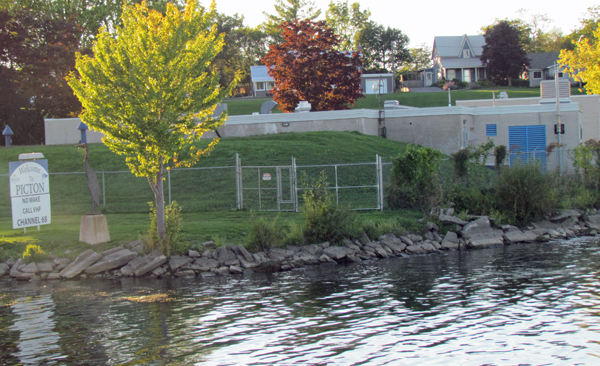County lifts state of emergency
Administrator | Apr 11, 2017 | Comments 0
 Mayor Robert Quaiff has officially ended the County’s state of emergency as water sampling results received Monday confirmed that contamination in Picton Bay no longer poses a significant threat to drinking water.
Mayor Robert Quaiff has officially ended the County’s state of emergency as water sampling results received Monday confirmed that contamination in Picton Bay no longer poses a significant threat to drinking water.
“According to the report, no product was found in recent days and the bay generally has lower than detectable levels of hydrocarbons,” said Quaiff at an Emergency Control Group media conference Tuesday morning at Shire Hall. “Having received these results I am comfortable with reducing our level of alertness.”
McKeil Marine, led the salvage operation of a partially submerged barge in Picton Bay. Two five-gallon (19-litre) containers believed to be a mixture of diesel and hydraulic oil spilled from the barge. McKeil retained Pinchin Ltd., an environmental, engineering, health and safety consulting firm, to develop a water monitoring program, as required by the Ministry of Environment and Climate Control.
The mayor declared the water emergency as a result of contaminants approaching the zone of the water intake that serves Picton and Bloomfield at 7p.m. on Tuesday, March 28th. Water processing at the Picton plant was stopped.
Hastings Prince Edward Public Health issued a Boil Water Advisory the following morning for residents and businesses connected to the distribution system as a precaution against potential bacterial contamination from water hauling efforts put in place to maintain the reservoir water supply while the Picton plant was shut down.
Although the Boil Water Advisory was lifted April 6th, the municipality maintained its state of emergency until the water monitoring program performed by Pinchin could be reviewed. Pinchin provided its report to the Ministry of the Environment and Climate Change on Friday, April 7th.
The mayor explained that under the provincial government’s Emergency Management and Civil Protection Act, a municipality may declare a state of emergency in a situation that poses a heightened risk to the health and safety of residents. By declaring, municipalities are able to access resources, and some funding, that would otherwise not be available.
It also allows municipal emergency control group to bypass some municipal procedures that would cause an unacceptable delay in responding to the immediate needs of the community.
“The decision to declare an emergency was not one that we took lightly,” the mayor said. “We responded to a threat to our largest drinking water system, and we were able to efficiently and effectively implement contingency plans to keep the water system operational and protect our residents from that threat.”
He said a diligent water sampling and monitoring program will continue at the Picton plant, and the municipality has begun considering how best to avoid a similar incident in the future.
“Residents can be confident in the quality and safety of the water service that the County provides,” said Quaiff. “I think this incident has confirmed the high level of caution and care that our water operators take in managing our drinking water systems. I couldn’t be more proud of our response, or more thankful for the support that we received from our partners throughout the region.”
He confirmed there will be conversation about perhaps expanding the Wellington intake and getting rid of the water intake in Picton, with staff and council, which includes weighing the extra expense and liability exposure for insurance and having piece of mind with the water drawn.
A $737,948 grant announced yesterday by Minister of Agriculture Jeff Leal, from the Ontario Community Infrastructure Fund, will assist the Picton plant in work under way to rehabilitate filters, improve the chlorine system and upgrade some structural elements at the plant. The funding will also help examine making changes to the carbon filter system to better handle an incident like a hydrocarbon discharge.
Filed Under: Local News
About the Author:
































